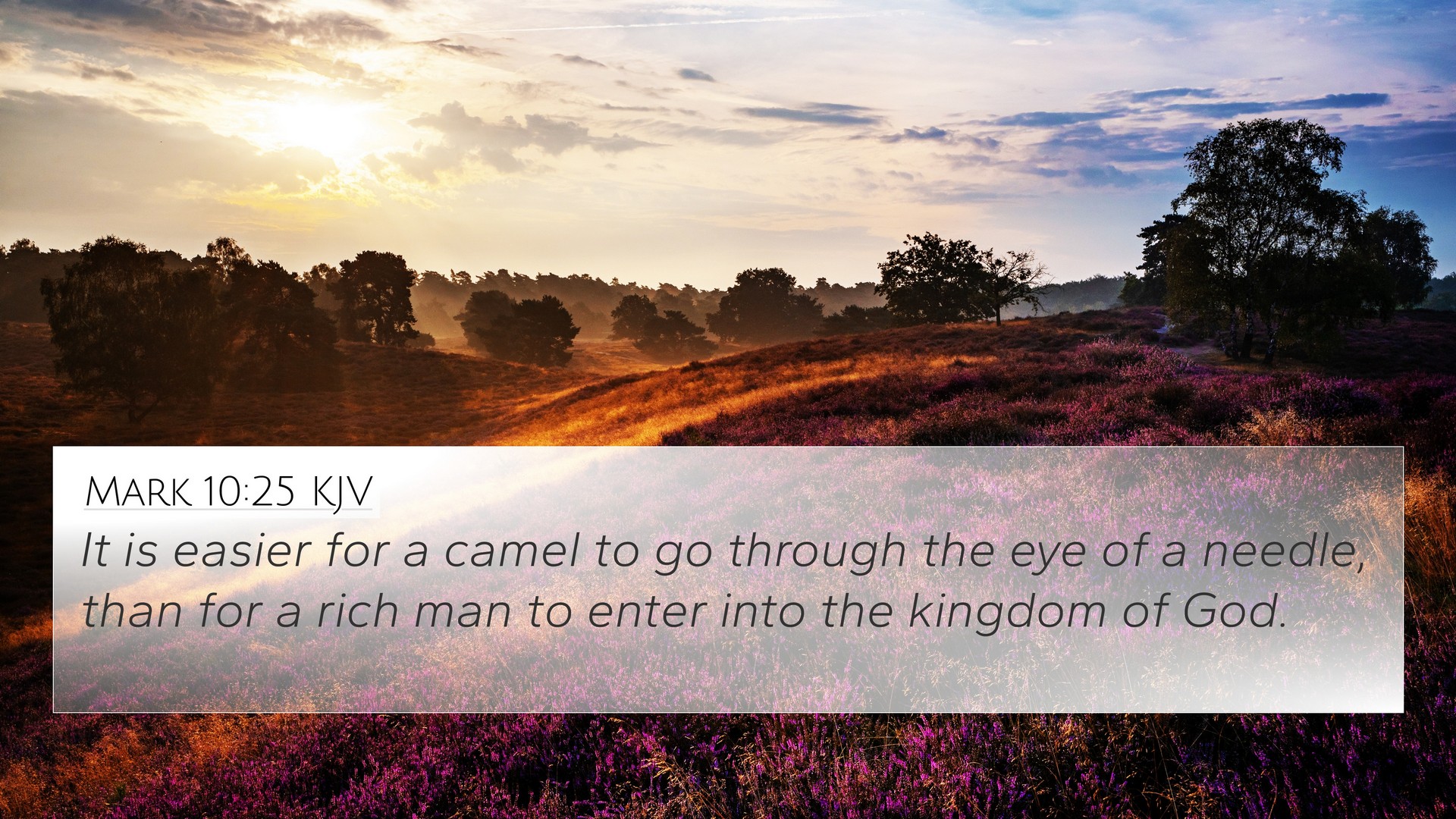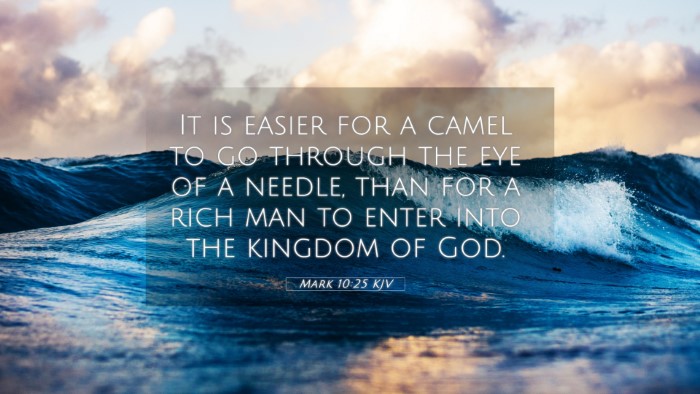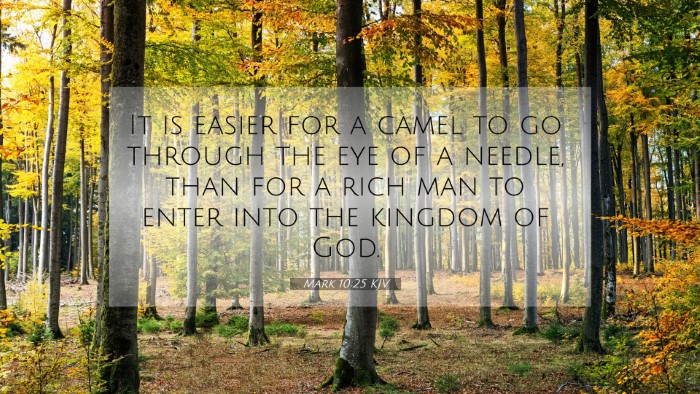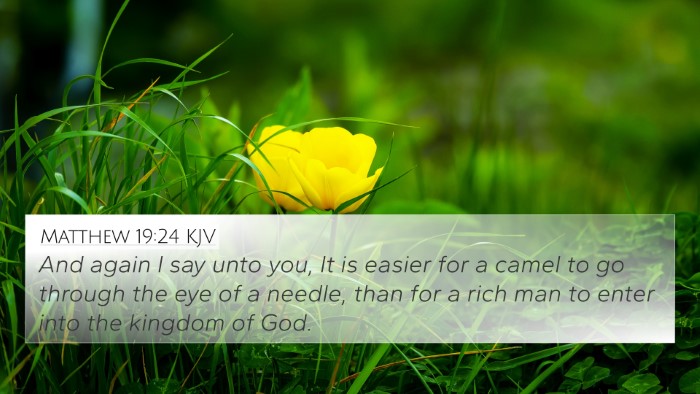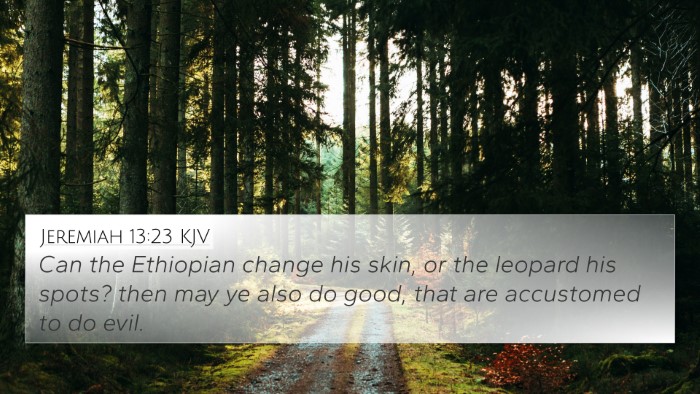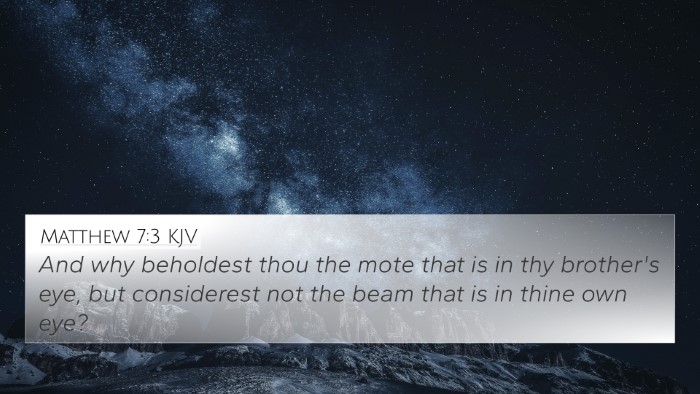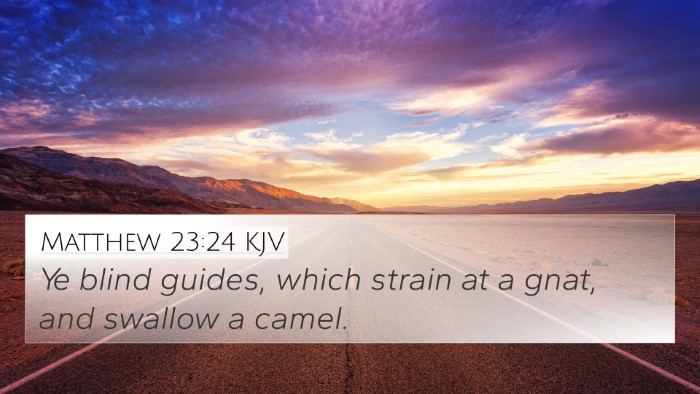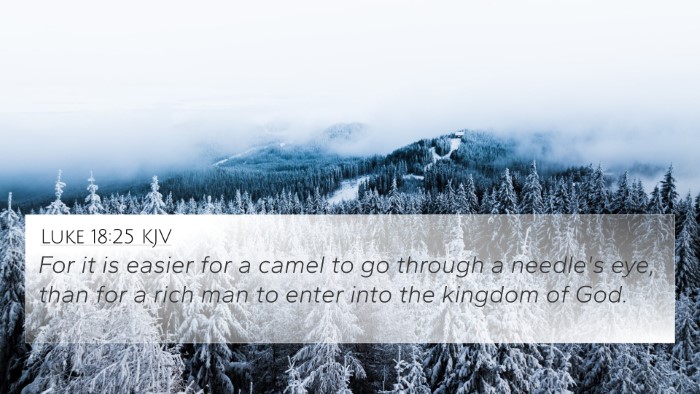Understanding Mark 10:25
Mark 10:25 states: "It is easier for a camel to go through the eye of a needle than for a rich man to enter into the kingdom of God."
This verse emphasizes the difficulties faced by those who are overly attached to wealth and material possessions when seeking spiritual fulfillment and entrance into God's kingdom. Through the combined insights of various public domain commentaries, we can explore the deeper meanings of this text.
Summary of Insights
The teachings from Matthew Henry, Albert Barnes, and Adam Clarke provide a layered understanding of Mark 10:25.
- Matthew Henry: Emphasizes the inherent challenge wealth can pose to spiritual pursuit. He interprets the camel metaphor as an exaggerated illustration of the improbable nature of a rich person entering the Kingdom without a change of heart, suggesting that wealth can lead to pride and distraction from faith.
- Albert Barnes: Discusses the cultural implications of wealth during Jesus' time. He argues that affluence often leads individuals to presume they have a place in the Kingdom based on their social status, rather than genuine humility and reliance on God.
- Adam Clarke: Elaborates on the metaphor used by Jesus, explaining that the "eye of a needle" symbolizes a threshold that is nearly impossible to cross. He emphasizes the necessity of putting spiritual riches above earthly ones for salvation.
Comprehensive Analysis
In examining this verse through a lens of cross-referencing, we find numerous other scriptures that highlight similar themes of wealth, humility, and the Kingdom of God.
- Matthew 19:24: "And again I say unto you, It is easier for a camel to go through the eye of a needle than for a rich man to enter into the kingdom of God."
- Luke 18:25: "For it is easier for a camel to go through a needle's eye than for a rich man to enter into the kingdom of God."
- James 2:5: "Hearken, my beloved brethren, Hath not God chosen the poor of this world rich in faith, and heirs of the kingdom which he hath promised to them that love him?"
- 1 Timothy 6:9-10: "But they that will be rich fall into temptation and a snare, and into many foolish and hurtful lusts, which drown men in destruction and perdition."
- Matthew 6:24: "No man can serve two masters: for either he will hate the one, and love the other; or else he will hold to the one, and despise the other. Ye cannot serve God and mammon."
- Proverbs 11:28: "He that trusteth in his riches shall fall: but the righteous shall flourish as a branch."
- Mark 8:36: "For what shall it profit a man, if he shall gain the whole world, and lose his own soul?"
Connecting Biblical Texts
When we analyze Mark 10:25 alongside these cross-references, we can see a rich tapestry of scriptural wisdom. This verse is part of a larger theme found throughout the Bible that cautions against the dangers of wealth while affirming the values of faith, humility, and reliance on God.
Thematic Bible Connections
By employing tools for Bible cross-referencing, we can establish thematic connections that enhance our understanding of biblical messages:
- Inter-Biblical Dialogue: Mark 10:25 prompts readers to consider the spiritual implications of wealth as echoed in the passages from Matthew and Luke, indicating a repeated lesson in the teachings of Jesus.
- Comparative Analysis: Through examining the verses in comparison, we see that the consistent message throughout the Gospels addresses the spiritual hazards of materialism.
- Biblical Parallels: The reflection found in the Proverbs and epistles substantiates this overarching message, arguing that a rich heart aligned with God’s principles surpasses earthly riches.
Tools for Inductive Study
Using cross-reference Bible study methods allows individuals to dive deeper into the text and discover connections that might not be immediately apparent. Resources such as a Bible concordance or a comprehensive Bible cross-reference guide can foster a thorough understanding of scriptural contexts.
Conclusion
Mark 10:25 serves as a profound reminder of the obstacles that wealth introduces into the spiritual life. By cross-referencing related scriptures, we enrich our understanding and appreciate the interconnectedness of Biblical teachings that guide believers towards true spiritual riches.
Ultimately, these insights offer a deeper discernment on how we prioritize our values and make spiritual choices in a material world, aligning with the essence of Jesus' teachings about the Kingdom of God.
